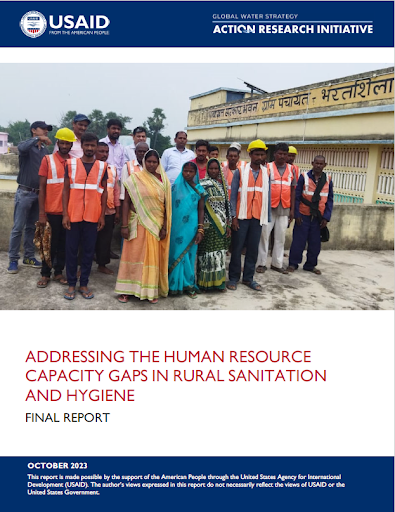Understanding and addressing the human resource needs and gaps in the sanitation and hygiene sector is a critical part of achieving universal access to adequate and equitable sanitation and hygiene. Previous studies have attempted to map the human resource capacity and needs of the sanitation and hygiene sectors; however, these studies have focused on educated and skilled professionals, overlooking volunteers, informal workers, and unskilled workers, who play a particularly important role in rural sanitation and hygiene. To understand the current and future human resource needs and gaps of these sectors and identify priority actions and pathways to address barriers, USAID WASHPaLS #2 conducted a sanitation and hygiene sector workforce capacity needs assessment.
Country Reports
The research focused on six countries - Ghana, India, Nepal, Nigeria, Rwanda, and the Philippines. Links to each country's study and reports are presented below.
About WASHPaLS #2
The Water, Sanitation, and Hygiene Partnerships and Learning for Sustainability #2 project (USAID/WASHPaLS #2) is a five-year (2021-2026) activity. WASHPaLS #2 builds on WASHPaLS (2016-2022) and aims to strengthen USAID’s WASH programming at the country-level and enhance global learning and adoption of evidence-based programmatic foundations needed to achieve sustainable development goal 6.2, particularly in rural areas. The objective of WASHPaLS #2 is to generate and facilitate WASH sector research and learning that will contribute to an improved understanding of area-wide sanitation.









